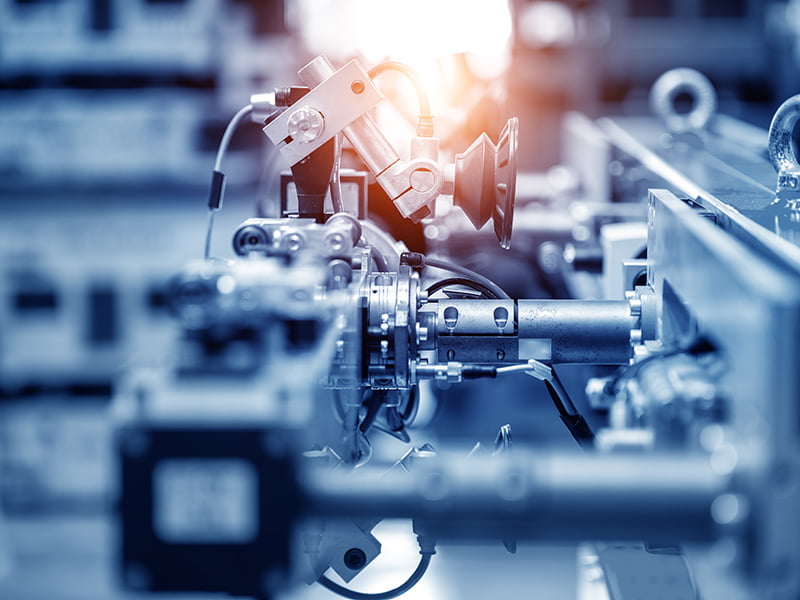The government will top-up its manufacturing fund by $750 million, including $500 million specifically for regional businesses, as part of the federal budget.
Plans will also be developed for the six priority sectors to guide longer-term investments, while the Manufacturing Modernisation Fund has also received a $50 million top-up, as part of a $1 billion manufacturing budget spend.
The 2022-23 federal budget, unveiled by Treasurer Josh Frydenberg on Tuesday night, provided an additional $328.3 million over five years to the Modern Manufacturing Strategy and its six national priority areas.
This includes an extra $250 million for the Modern Manufacturing Initiative, a scheme providing matched grants to Australian companies for manufacturing projects.
A further $500 million will be provided to the same scheme through the Regional Accelerator Program, with all of this funding to go towards regional projects. This funding will come from the Department of Infrastructure, Transport, Regioinal Development and Communications rather than the Industry department.

The $1.5 billion Modern Manufacturing Strategy was unveiled in late 2020 as a key policy in Australia’s economic recovery from the Covid-19 pandemic.
The biggest chunk of this funding – $1.3 billion – has gone to the Modern Manufacturing Initiative, which provides co-funding grants to Australian manufacturers in set priority sectors to scale, collaborate and commercialise projects.
The collaboration stream accounts for $800 million of this funding and offers the largest grants of between $20 million and $200 million for big projects.
A series of these grants have been announced in recent weeks, including three for South Australian projects in the lead up to the state election.
The manufacturing strategy is based on six priority sectors: space, defence, recycling and clean energy, medical products, food and beverage, and resources technology and critical minerals processing.
In the budget, the government has allocated extra funding to these projects over the coming years.
A further $53.9 million over four years will go towards the Manufacturing Modernisation Fund, which encourages technology adoption in the key sectors, providing for round three of the fund, which provides co-investments for the adoption of new technologies.
And $6.9 million has been allocated over two years to develop manufacturing investment plans which will guide government and industry investment in the priority areas over the long term.
In total, $420.9 million is estimated to be spent on the Modern Manufacturing Initiative in 2021-22, and $520 million in 2022-23.
The government is estimating that $340 million will be spent on the scheme in 2023-24.
“This commitment to Australian manufacturing will secure supply chains and jobs during a period of heightened global uncertainty, as the Morrison government works in partnership with industry to build a strong, modern and resilient manufacturing sector,” Industry Minister Angus Taylor said.
It was revealed at Senate Estimates earlier this year that while $550 million had been allocated across 2020-21 and 2021-22, only $292 million had been executed and $85 million dished out.
This number would be significantly higher now after a series of large manufacturing grants were announced in recent weeks.
The budget also allocated $4.7 million to support women in manufacturing.
The Regional Accelerator Program has been allocated $2 billion in total over five years to “drive transformative economic growth and productivity in regional areas”.
It will provide “regional extension funding” for 12 existing programs, including the Modern Manufacturing Initiative.
Included in this will be a further $250 million for the Supply Chain Resilience Initiative, and $200 million for the critical minerals accelerator.
The federal budget also included confirmation that the government has begun negotiations on financing an additional critical minerals project through its existing facility, but the funding for this has been kept secret.
Funding has already been provided to EcoGraf Limited to expand the Australian Battery Anode Material Facility in Western Australia and to Renascor Resources for the development of the Siviour Graphite Concentrate and Special Graphite projects in South Australia.
More than $250 million will also be provided over five years to assist early-stage local critical minerals projects to reach market readiness.
This funding, announced last month, includes $200 million for an accelerator initiative and $50.5 million for a virtual Critical Minerals Research and Development Centre.
Do you know more? Contact James Riley via Email.

